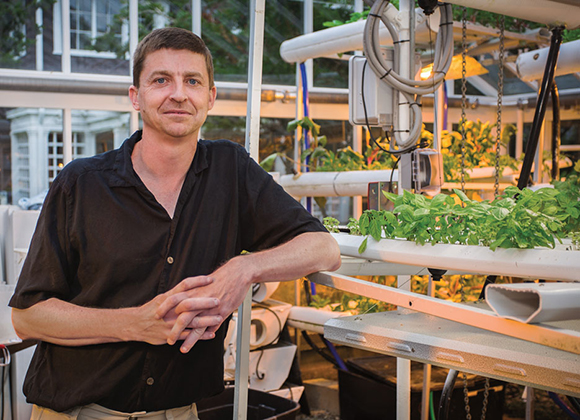BC STEM educators guide Charles River Collaboratory project for underserved youth
The Charles River Collaboratory, a new project of the Charles River Museum of Industry & Innovation of which Boston College is a partner, will receive a three-year, $150,000 grant from Cummings Foundation to support the engagement of underserved youth and their families with emerging technologies and tools.
The Collaboratory is a youth-led, equity-focused makerspace, guided by the University’s STEM educators from the Lynch School of Education and Human Development and the Engineering Department. Through a near-peer mentoring approach in which senior high school youth support younger students in transdisciplinary scientific investigations using AI technologies, 3D printing, laser engraving, and physical computing to address problems in the community, the grant will enhance the Collaboratoy's support of youth over time.
The Waltham-based organization was selected for the grant from a total of 715 applicants during a competitive review process.
The project is co-led by G. Michael Barnett—a professor in the Teaching, Curriculum and Society department of the Lynch School who specializes in using innovative research projects to pique and sustain interest in STEM among college undergraduates and urban high school students—and Engineering Assistant Professor and Sabet Family Dean’s Faculty Fellow Avneet Hira of BC’s Morrissey College of Arts and Sciences, who frequently partners with undergraduate and middle school students, their families, community organizations to create technology-rich, inclusive spaces for supporting purpose and connection in engineering education.
Helen Z. Zhang, a senior research associate at the Lynch School, and a frequent collaborator on grant-funded STEM programs for low-income high school students, rounds out the BC faculty team.
“We are grateful to codesign and work with the fantastic youth of the Waltham Public Schools as we jointly envision the future of the Charles River Collaboratory,” said Barnett.
BC’s Schiller Institute for Integrated Science and Society provided the facilitating funding that enabled the partnership to build the groundwork leading to Cummings Foundation’s award, noted Barnett. “We are particularly thankful for the support of the Lynch School and BC’s Schiller Institute for serving as a catalyzing spark to jumpstart the work,” he said.
“This work continues to realize the University’s mission to develop initiatives in service of the common good using the affordances of engineering and technology,” said Hira, who expressed appreciation for the community and on-campus partners who have championed this effort. “I’m excited about the youth-centered nature of this program that challenges the sometimes- detrimental dynamics prevalent in technology-rich settings.”
“Greater Boston is fortunate to have a robust, dedicated, and highly capable nonprofit sector that supports and enhances the community in myriad ways,” said Cummings Foundation Executive Director and Trustee Joyce Vyriotes. “The entire Cummings organization is thankful for their daily work to help all our neighbors thrive.”
Cummings Foundation’s grant program primarily supports Massachusetts nonprofits based in and serving Middlesex, Essex, and Suffolk counties, plus six communities in Norfolk County. Through this place-based initiative, Cummings Properties, a Woburn-based commercial real estate firm, aims to reinforce the areas where it owns and manages property through its foundation awards.
“Cummings Foundation recognizes the role that museums can play in the larger educational ecosystem by serving as an active learning asset in the community that engages all residents in creative and innovative learning experiences,” said Bob Perry, the museum ’s executive director. “This grant creates a potentially transformative opportunity for the museum as we continue to grow and to expand our community outreach and engagement efforts in the City of Waltham and surrounding towns.”
The Charles River Museum of Industry & Innovation displays machinery and artifacts of the Industrial Revolution from the 19th and 20th centuries. The building, originally built in 1813 as part of Francis Cabot Lowell's Boston Manufacturing Company, housed the world’s first, fully integrated textile mill. It was awarded National Historic Landmark status as America's first factory in 1977.
Lowell, an American businessman from Newburyport, Mass., for whom the city of Lowell is named, was instrumental in transforming an agrarian-based economy to one dominated by large-scale industry and machine manufacturing. The museum, incorporated in 1980 and opened to the public in 1988, absorbs only a small portion of the previous mill building complex.

